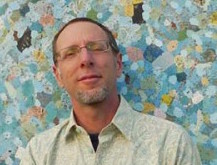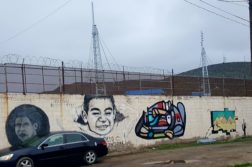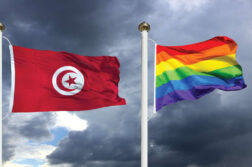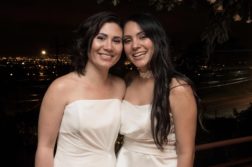WHEN I was growing up in rural Florida in the 1970s and ’80s, gay life was secreted behind closed doors. Gay bars had names like “Secrets” and were hidden in nondescript strip malls where you could get bashed in the parking lot. It was a disgrace to one’s family to be gay — a fate worthy of being thrown out, fired from one’s job, publicly ridiculed, or even beaten, while a blind eye was turned on you.
Now at the age of 51 as an expat American, I sit in my office looking out over the predominantly Muslim city of Kuala Lumpur in Malaysia, a place that seems perpetually stuck in that gay un-friendly time in my life.
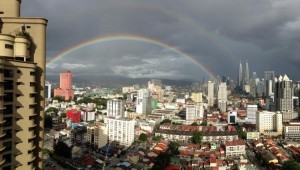
I’m chatting with various local friends who are all chirping about the recent verdict of the U.S. Supreme Court legalizing same-sex marriage. I sent them a picture of the White House illuminated in rainbow colors, a sight I was certain had been photoshopped, but in fact, it hadn’t. Even I was incredulous — the White House tricked out in the colors of the rainbow? What happened to the country I turned away from, thinking it would never grow up?
For me, living in Malaysia has effectively recreated my sweaty Florida childhood. Any and all gay content is censored from TV and films, so it’s as if we don’t exist — just as I didn’t exist in backwater Florida late last century. For gay locals here in Asia, the Supreme Court verdict is pure entertainment enjoyed on uncensored social media. It’s an expression of freedom that they will never know in Malaysia, a country stunted by its colonial past—and its unforgiving religion.
With the photo of the colorful White House, I included a caption to my Malaysian friends saying something to the effect that “this was a hard-won victory, the result of decades of activism by people who refused to be considered second-class citizens.” There was a resounding silence. This very American attitude of fighting for your rights falls on deaf ears to most Asians, who by cultural tradition accept what they’re given without complaint, whether the meal that wasn’t cooked properly or the cars blocking the sidewalk—or, if your gay, to the widespread homophobia you face on a daily basis. Nothing subversive will be said or done. And as a result, nothing changes. It’s a legacy of 6th-century Chinese philosopher Lao Tzu’s teachings, which encouraged a stoical acceptance of one’s lot in life.
Malaysia’s penal code is a stern mixture of Islamic and British colonial law, which conspire to make same-sex sexual acts a punishable offense with up to twenty years of jail time and/or a caning. Gay bars in Kuala Lumpur are latter-day speakeasies subject to being raided by the police. Just last year, the former deputy prime minister was charged with sodomy under British colonial law and sentenced to five years in jail.
I have a Malay friend who, by most people’s standards, would be considered a prize catch in his mid-thirties—handsome, professional, and educated in England. But he remains perpetually single here in Malaysia because he lives at home with his family. And he’s a Muslim. What this translates into is a secret life as a gay man and a lot of familial pressure to marry and have children. I asked him if he’d considered going to America to find a husband and get a green card. He shied away from the idea, saying that, as a foreigner and a Muslim, he would probably face a new kind of oppression in America, not so much homo- as Islamo-phobia.
If there’s one thing I’ve learned about life in Southeast Asia, it’s that most people here are not fixers or changers. The prevailing wisdom is more about making things work as they are and not call attention to oneself. And that keeps countries like Malaysia, Myanmar, Laos, Cambodia, and Indonesia perpetually behind the times when it comes to human rights—not just for GLBT people but for women and ethnic minorities, as well.
The Malaysian government spins the gay victories of America as cautionary tales from a land whose moral compass is spinning out of control. The locals here watch these faraway events on YouTube with raised eyebrows and disbelief — something they could never imagine for themselves. Some gay people may rainbow up their Facebook profile pic, but that’s about as far as their activism will go.
David Gilmore is a writer and blogger living in Kuala Lumpur. He is the former host of Outright Radio from Public Radio International and the author of Homosteading at the Nineteenth Parallel. He can be reached at davidgdesigns@gmail.com


